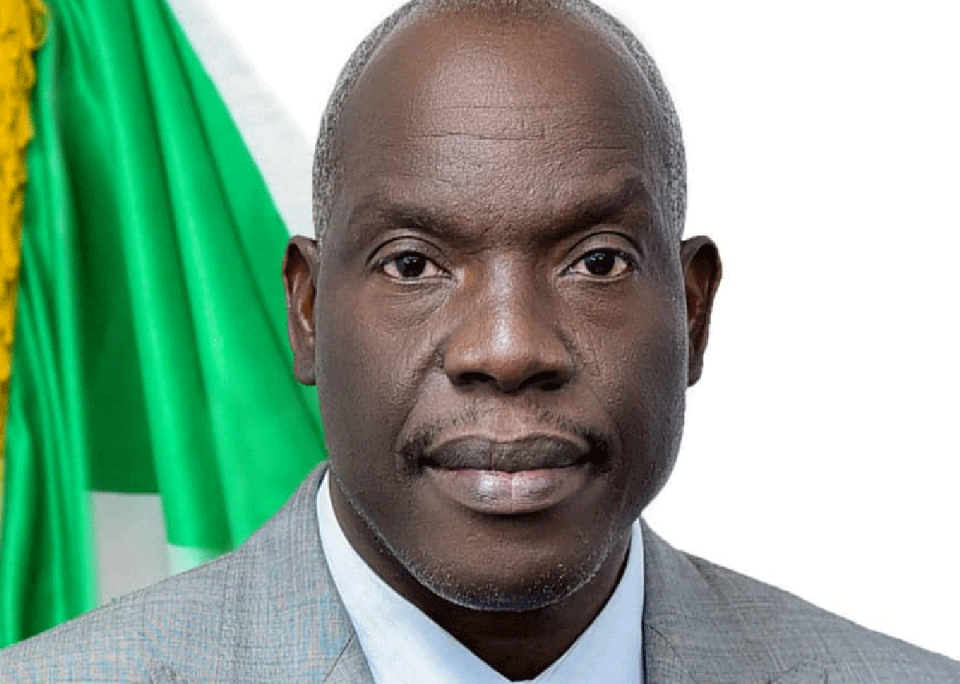The Chief Executive Officer of the Nigerian Upstream Petroleum Regulatory Commission (NUPRC), Engr. Gbenga Komolafe, has called on oil producing countries in Africa to scale up their oil exploration and production activities to curtail the rising oil prices globally and ensure energy security.
Komolafe made the call during his goodwill message at the ongoing 44th Nigeria Annual International Conference and Exhibition (NAICE) in Lagos organised by the Society of Petroleum Engineers (SPE) Nigeria Council.
The NUPRC chief noted that increased exploration and production and protection of oil and gas investments have become imperative to guarantee strong energy mix and security. He underscored this with the renewed search for oil and gas in the North Sea in the United Kingdom.
He said: “The recent increase in the price of energy mostly occasioned by the conflict between Russia and Ukraine and the ensuing energy disruption has reawakened the call for geopolitical energy security and sustainability. For instance, in the United Kingdom, the North Sea Transition Authority (NSTA) – formerly the Oil and Gas Authority – is envisaging a leasing and licensing round for oil and gas exploitation and future projects.
“Given this outlook, it is evident that in meeting the growing energy demand in the short and medium term, the upstream oil and gas industry in Africa would need to carry out further exploration and development drilling to optimize reservoir extraction, drill into new targets, and employ technological advances to optimize production yields for appropriate energy mix.
“We at the Nigerian Upstream Petroleum Regulatory Commission have steered our focus towards working with all stakeholders to ensure business investments in the oil and gas sector are adequately protected. We are striving to ensure that all bottlenecks associated with regulatory processes are eliminated or minimised, to ensure seamless operations as we gradually roll out the key policy initiatives necessitated by the Petroleum Industry Act (PIA) 2021. We are positioning gas as our transition fuel while adopting phase- down approach in our energy transition quest geared towards paying greater attention to the development of untapped gas resources. This energy source with low carbon footprint would serve as the transition fuel in meeting our energy security as a nation.
To him, the theme of this year’s NAICE, “Global Transition to Renewable and Sustainable Energy and the Future of Upstream Oil and Gas in Africa,” is indeed apt, considering the current trends and realities in the global oil industry.
Buttressing the aptness of the theme, Komolafe said the commitments from the Paris Agreement of 2015 and the recently concluded 26th Conference of the Parties (COP26) in Glasgow, in which Africa actively participated, places demand on all of us to keep global temperature rise to within 1.5 °C – 2.0 °C of pre- industrial levels. The implications of this for upstream oil and gas industry in Africa are far-reaching. The need to decarbonise our oil and gas production facilities not only requires commitments but entails that we have the right discourse on policy direction to guarantee energy security throughout the journey to our net-zero target. Hence, the SPE Nigeria Council through various symposia, conferences, seminars, workshops, industry collaborations and lecture series has continued to blaze the trail in the energy transition discourse. This 2022 edition of NAICE presents another opportunity for you and I to make invaluable contributions to this noble discourse as the quest for cleaner energy and net-zero carbon footprint garner momentum, the need for oil and gas producers in Africa to embrace the reality of energy transition and take strategic position to leverage the opportunities presented by the unfolding era has become more pressing.
“However, recent events around the globe indicate that fossil fuels will continue to be a core part of the global energy mix well into the future, even beyond the 2050 targets for achieving net-zero that has been set by most countries.
“Fortunately, several African countries including Nigeria, Algeria, Mozambique, Egypt, Libya, among others, are blessed with huge gas reserves. With a total of over 620 trillion cubic feet of natural gas reserves and 125.3 billion barrels of crude oil, the future of upstream oil and gas in Africa is promising but requires the right legislative framework and a change in policy direction for maximum economic recovery and energy sustenance.
“Accordingly, the recently enacted Petroleum Industry Act (PIA), 2021 in Nigeria has generous fiscal provisions aimed towards attracting investment not just for oil development but for harnessing of the rich gas potentials of the nation which is among the highest in the world. As we drive for investment in cleaner hydrocarbon development, without prejudice to maximum economic recovery strategies for development of oil resources, the Commission empowered by the PIA has placed its focus on four cardinal areas for sustainable gas development and utilization as follows: Gas reserves growth; Optimized gas production; Domestic gas utilization; Gas flare elimination.
“We expect other African countries to adopt suitable anchor points and roadmaps similar to those presented in the foregoing in order to achieve the right energy mix while decarbonizing our oil and gas development.”




